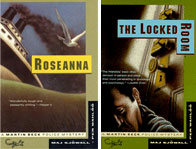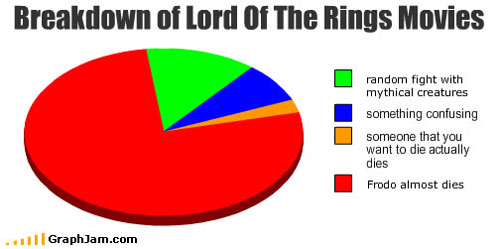My pastor, on his blog, referred his dedicated readers to a blog by Scott McKnight, who has begun a series on “The Future of Christian Eschatology” (the End Times). It’s a five-part series which is going to run throughout this week.
I’m not usually one to read such stuff. Back in high school in Lake Havasu City, Ariz., I got all wrapped up in End Times hype (those were the days of Hal Lindsey’s “Late Great Planet Earth,”), and when I realized it was messing me up, I pretty much abandoned interest in the subject.
I’ve always prided myself on doing my own thinking, reaching my own conclusions, and I trace a lot of it back to that time in high school, when I decided, “This is what my church leaders are preaching, but I’m not so sure.” I didn’t abandon a pre-trib view (then), but I did swear off End Times literature. I don’t think I’ve read an End Times book since then.
Besides, I envision the world being a whole lot more messed up than it is now before Christ crashes back into the picture (like some post-apocalyptic Mad Max or zombie movie). So I’m figuring (as if I know) that The Return won’t even happen in my lifetime. Saves a lot of fretting.
Anyway, I really enjoyed McKnight’s first installment, and will be going back to read the rest. He takes a post-trib viewpoint, contrary to Jenkins and Lahaye. Actually, it might be interesting if they wrote a new series based on a post-trib view, with Christians going through the tribulation. Think of the millions of additional dollars they could make? Though, as McKnight says, people don’t want to hear that view. They want to hear the “safe” scenario.


 “The Fine Line: Re-envisioning the Gap Between Christ and Culture,” by Kary Oberbrunner, is about how the Christian relates to our culture. There are separatists, who avoid the culture in order to remain pure. And there are conformists, who indulge in the culture. Most evangelicals I know would fall in the conformist camp. We like our TV shows, pop music, movies of whatever rating. We justify it by saying we need to relate to our secular culture. It’s a matter of relevance.
“The Fine Line: Re-envisioning the Gap Between Christ and Culture,” by Kary Oberbrunner, is about how the Christian relates to our culture. There are separatists, who avoid the culture in order to remain pure. And there are conformists, who indulge in the culture. Most evangelicals I know would fall in the conformist camp. We like our TV shows, pop music, movies of whatever rating. We justify it by saying we need to relate to our secular culture. It’s a matter of relevance. Martin Beck is the central figure of this detective series by Per Wahloo and Maj Sjowall. He’s a Swedish detective, and bears plenty of resemblance to Kurt Wallander, the detective in Henning Mankell’s books.
Martin Beck is the central figure of this detective series by Per Wahloo and Maj Sjowall. He’s a Swedish detective, and bears plenty of resemblance to Kurt Wallander, the detective in Henning Mankell’s books.






